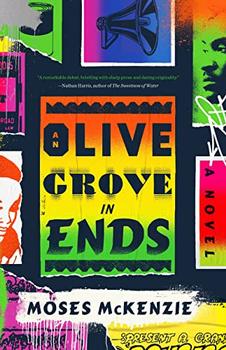Summary | Excerpt | Reading Guide | Reviews | Beyond the book | Read-Alikes | Genres & Themes | Author Bio

Silence might be a source of great strength, but for Ananda Sen, the 20-something protagonist of Odysseus Abroad, it can also be deeply disquieting, leading to increased introspection of his solitary immigrant life. "He'd become aware of its constant nearness in England," Chaudhuri writes. "The silence in the studio flat when the window was down, the silence of the library or when he was at home reading, the lecturer's voice in a hall, they all did the same thing too: emphasized the leaden permanence of that proximity — the proximity of this shadowy, indestructible thing, the self." In Chaudhuri's very capable hands, this silence becomes, not just a convenient vehicle for the young student to analyze his place in '80s London — a time when "the indomitable grocer's daughter" was in power — but serves as a reflection of the specific kind of pervasive sadness that colors his days.
There's a difference between solitude and loneliness, the former implying a level of contentment, and Chaudhuri, always an expert at teasing out such differences, is in fine form here. The story, as with most of his work, isn't much. Essentially, lonely Ananda travels around London one Sunday afternoon, ruminating about his ambitions as a poet, and then he meets his uncle, Rangamama, who adds some color and a different perspective to Ananda's musings as they walk around the city together.
Much like the Greek hero, Odysseus, Ananda's journey is a literal one, but which also describes the many metaphorical hurdles faced by both the young man and his much older uncle — not just the routine, oft-visited trope of immigrant displacement, but also of coming to terms with one's own middling mediocrity and the prices one pays for nonconformity. The product of a coddled Kolkata childhood, Ananda has never had reason to worry about material comforts. Nevertheless, it is understandable that he is looking for some measure of self-worth: More immediately, he worries both about the quality of his poems, wondering if they will ever make the cut at Poetry Review. The larger question about what he will do once he returns to India, armed with a graduate degree in poetry, is also forever on the periphery of his consciousness. For Ananda is well aware that the particular brand of Bengali intellectualism that such an education delivers, no longer carries much currency either in London or back in India.
The bachelor Rangamama cuts an interesting figure. He manages to wrangle out of societal expectations (a house in the suburbs, kids in elite schools) as outlined by his fellow Bengali immigrants in London, but finds family ties much harder to break, sending distant relatives money from the pension he now withdraws: "He saw himself giving and giving to a family that no longer cared for how he lived, that sucked him dry as he continued indefinitely in 24 Belsize Park, leaving him in the physical state he was now in: in the old three-piece suit, the incisor missing, the broad and full (and vibrant, Ananda thought) nose somehow highlighted by the hair cropped to pinpricks by the barber."
London too, is a vibrant character here, opening paths of upward mobility for immigrants old and new, its residents favoring an upgraded "smart new acceptable curry, integer of the city's recent commercial success and boom." Yet Chaudhuri's choice to set the story in the '80s sometimes feels like too convenient a way to showcase a fossilized way of life. One wonders, for example, how Ananda and Rangamama would have navigated their lives in today's instant-messaging world. Would the contrasts have been that much starker, the challenges that much more muddied? And while nephew and uncle share plenty of profound insights, the endless navel-gazing can get soporific after a while.
Nevertheless Odysseus Abroad has plenty to reward the patient reader. At one point, Ananda reflects on the work of a South African poet at his college whose work avoided politics and hand-wringing, choosing instead to be "a landscape of sunlight, comedy, provincial drabness, and small existential dramas." It is hard not to read a description of Chaudhuri's own body of work within these lines. But while this lack of politics might have been a limitation for the South African, making him a "relatively minor player," that couldn't be farther from the truth in Chaudhuri's case. With his quiet ruminative voice and powerfully crafted sentences, Chaudhuri has carved himself a specific kind of niche, where high art can be found even in one long Sunday afternoon walk, in such everyday "small existential dramas."
![]() This review was originally published in The BookBrowse Review in April 2015, and has been updated for the
February 2016 edition.
Click here to go to this issue.
This review was originally published in The BookBrowse Review in April 2015, and has been updated for the
February 2016 edition.
Click here to go to this issue.

If you liked Odysseus Abroad, try these:

by K. Ancrum
Published 2025
Perfect for fans of Adam Silvera and Aristotle and Dante Discover the Secrets of the Universe, this suspenseful queer YA romance from critically acclaimed author K. Ancrum reimagines the tale of Icarus as a star-crossed love story between a young art thief and the son of the man he's been stealing from—think Portrait of a Thief for YA readers...

by Moses McKenzie
Published 2023
An electrifying debut about a young man faced with a fraught decision: escape a dangerous past alone, or brave his old life and keep the woman he loves.
Your guide toexceptional books
BookBrowse seeks out and recommends the best in contemporary fiction and nonfiction—books that not only engage and entertain but also deepen our understanding of ourselves and the world around us.